KCET FAQs 2025
Welcome to the comprehensive FAQ page for the Karnataka Common Entrance Test (KCET) 2025. This page is meticulously designed to guide students, educators, and parents through the myriad aspects of one of Karnataka’s most significant entrance examinations. The KCET is a gateway for students aspiring to secure admission in various professional courses such as Engineering, Technology, Pharmacy, and Agriculture in the state of Karnataka.
Our FAQ section addresses a wide range of queries, from the basic steps of how to apply for the KCET 2025, to more nuanced concerns about preparation strategies and eligibility criteria. Whether you’re wondering about the best resources for KCET preparation, contemplating the feasibility of preparing at home, or questioning the importance of Class 11 syllabus in the exam, we have you covered. Additionally, this page sheds light on critical aspects such as the exam format, marking scheme, and the calculation of ranks, ensuring that aspirants are well-versed with the examination process.
For those in a dilemma about dropping a year for preparation, or weighing the pros and cons of coaching, our insights aim to provide clarity and direction. We also delve into specific subject queries like the difficulty level of Chemistry in KCET, and logistical details such as the allowance of calculators in the exam.
This FAQ is an indispensable resource for anyone aiming to understand the intricacies of KCET 2025, offering guidance on how to maximize scores, understand the significance of Class 12 marks, and evaluate the best engineering colleges under KCET. It is tailored to answer the most pressing questions, demystify common misconceptions, and equip candidates with the knowledge to confidently navigate their KCET journey.

Most Commonly Asked Questions
The Karnataka Common Entrance Test (KCET) application process typically involves the following steps:
- Registration: Create an account on the official KCET website.
- Filling the Application Form: Provide personal, educational, and contact details.
- Uploading Documents: Upload scanned images of your photograph, signature, and other required documents.
- Payment of Fees: Pay the application fee online.
- Final Submission: Review and submit the application.
- Printout: Take a printout of the application form for future reference.
Remember to check the eligibility criteria before applying and adhere to the specified. To know more read our detailed guide on KCET Application Process
To prepare for KCET 2024, follow these key strategies:
- Understand the Syllabus and Exam Pattern: Know the exam structure and focus on essential topics.
- Practice Previous Year Papers: Solve KCET sample papers to familiarize yourself with the exam format.
- Create a Study Plan: Devote equal time to each subject based on the syllabus.
- Mock Tests: Take mock tests for effective time management and preparation.
Yes, you can prepare for KCET at home. To excel in KCET from the comfort of your home, Deeksha provides effective methods to prepare for the KCET exam. Explore study tips, time management techniques, and resources to excel in the Karnataka Common Entrance Test. Our guidance and study materials can complement your preparation, ensuring a holistic approach to success.
- Understand the Syllabus: Thoroughly grasp the KCET exam syllabus.
- Devote Adequate Time: Dedicate 6-8 hours daily to your exam preparation, with short breaks in between.
- Practice Previous Year Papers: Enhance your preparation by practicing KCET previous year question papers and sample papers. When attempting sample papers, use a timer to improve speed and time management.
For KCET preparation, consider the following recommended books for each subject. These resources cover key topics and provide comprehensive content for effective KCET exam readiness.
Physics
- “Concepts of Physics” by H.C. Verma
- “Fundamentals of Physics” by Halliday, Resnick & Walker
Chemistry
- “Modern ABC Chemistry” by S.P. Jauhar
- “Principles of Physical Chemistry” by Puri, Sharma, and Pathania
Mathematics
- “New Course Mathematics” by S. Chand (V.K. Kapoor)
- “Higher Engineering Mathematics” by B.S. Grewal
Biology
- “NCERT Biology Textbooks” for Class 11 and 12
- “Trueman’s Elementary Biology” by K.N. Bhatia
Note: The above recommended books are just for information. To get the best book to suit your needs, consult your guide for more.
Cracking KCET in 15 days is a challenging task, but with a strategic approach, it’s possible to make efficient use of this time. Here are some tips:
- Create a Study Schedule: Allocate specific time slots for each subject based on your strengths and weaknesses. Focus on high-weightage topics.
- Practice Previous Years’ Papers: Utilize previous years’ KCET question papers for practice. It helps in understanding the exam pattern and familiarizing yourself with potential question types.
- Mock Tests: Take mock tests to simulate exam conditions. This aids in time management and enhances your problem-solving skills.
- Focused Study: Concentrate on essential topics rather than trying to cover the entire syllabus. Prioritize subjects based on their weightage in the exam.
- Seek Expert Guidance: If possible, consult with teachers or experts to clarify doubts quickly.
- Stay Healthy: Ensure proper sleep and maintain a healthy lifestyle to stay focused during your intense preparation period.
Scoring above 150 in KCET demands a strategic approach to your preparation. Here are key tips to achieve this target and how Deeksha can assist you in reaching your goals:
- Thorough Syllabus Understanding: Understand the complete KCET syllabus and exam pattern to identify important topics and allocate your study time effectively.
- Create a Comprehensive Study Plan: Develop a well-structured study plan covering all subjects with a focus on high-weightage topics. Allocate sufficient time for each subject to ensure thorough coverage.
- Regular Practice with Mock Tests: Practice with KCET mock tests and previous year papers to familiarize yourself with the exam pattern. Deeksha provides additional practice sets to strengthen your preparation.
- Expert Guidance from Deeksha: Deeksha, a reputable coaching institute, offers expert guidance and comprehensive study materials to enhance your preparation for KCET.
- Personalized Learning at Deeksha: Deeksha provides personalized classes, offering ease of learning and expert guidance to help you understand complex topics effectively.
- Consistent Support and Practice: Joining Deeksha ensures consistent support, regular practice, and personalized attention, creating an environment conducive to achieving the required marks in KCET.
Remember, success in KCET requires not only hard work but also smart and focused preparation. Deeksha’s approach aims to provide students with the necessary tools and guidance to excel in the examination.
Yes, it is generally acceptable to take a gap year for KCET preparation. Many students opt for a gap year to focus on their studies and enhance their preparation for the exam. However, it’s essential to consider various factors such as the specific requirements of the college or university you plan to apply to and the impact on future placements.
With Deeksha you can prepare for both with our integrated coaching model which has a well balanced approach when it comes to pre university and competitive exam coaching.
It’s advisable to maintain continuous communication with the academic institutions and understand their policies regarding gap years. Additionally, ensure that you utilize the gap year effectively for comprehensive preparation.
As of the latest information available, Kannada is not compulsory for all candidates appearing in the Karnataka Common Entrance Test (KCET). The eligibility criteria may have exemptions for candidates who have studied in the Kannada language for a certain number of academic years or those from specific regions.
It’s crucial to check the official KCET eligibility criteria provided by the Karnataka Education Authority (KEA) to confirm any recent updates or changes regarding the Kannada language requirement.
To be eligible for KCET 2024, candidates must meet the following criteria:
- Educational Qualification: Candidates should have passed the 2nd PUC / class 12 or an equivalent examination.
- Mandatory Subjects: Candidates must have completed their qualifying exam with Physics, Chemistry, Mathematics and Biology as compulsory subjects.
- Minimum Marks: A minimum aggregate of marks is required. For example, candidates should have secured at least 45% marks in aggregate in Physics, Chemistry, Mathematics and Biology.
- Board Recognition: The qualification should be from a recognized board or institution.
- Additional Requirements: Specific documents such as a valid email ID, valid mobile phone number, and educational qualification documents are essential for the application process.
As of the 2024 exam, there is no specified attempt limit for the Karnataka Common Entrance Test (KCET). Candidates are allowed to take the KCET exam any number of times without facing any restrictions on the total attempts. This lack of attempt limit provides candidates with the flexibility to appear for the KCET multiple times to improve their scores or qualifications.
Yes, KCET (Karnataka Common Entrance Test) is open to non-Karnataka students. Eligibility criteria, including academic qualifications and other requirements, may vary for non-Karnataka students, but they are permitted to participate in the examination. It is essential for non-Karnataka students to refer to the official KCET website or contact the relevant authorities to obtain specific details regarding eligibility and admission criteria.
Yes, while the KCET (Karnataka Common Entrance Test) primarily focuses on the syllabus of Class 12 (2nd PUC), there are fundamental concepts that are picked up for evaluation from class 11 as well. The exam considers the subjects studied in Class 11 & 12, including Physics, Chemistry, Mathematics, or Biology, depending on the chosen course. The KCET exam is typically based on the syllabus covered in the Class 11 and Class 12. For more information on the syllabus for KCET refer to the page here.
Cracking KCET requires strategic preparation and a strong understanding of the exam pattern. While it may be challenging for some, effective study methods, regular revisions, and solving mock tests can enhance success rates.
By providing specialized coaching, Deeksha aims to bridge the gap between regular board exams and competitive entrance tests like KCET. Our methodology focuses on coaching students for KCET, JEE, NEET, and CET, empowering them for success in these challenging exams. The personalized approach and experienced faculty at Deeksha contribute to students’ comprehensive understanding of the syllabus, increasing their scores in the KCET exam.
The rank for the Karnataka Common Entrance Test (KCET) is calculated based on the scores obtained by the candidates in the test. The detailed process of calculating the CET rank involves considering the marks obtained in the PU examination. The marks vs. rank analysis is a significant aspect, where candidates can predict their ranks by understanding the correlation between their scores and the expected rank range. The calculation of the KCET merit list involves providing equal weightage, usually in a 50:50 ratio, to the marks obtained by the applicants in the KCET exam. The rank predictor tools available online can also aid candidates in estimating their probable ranks based on their scores.
KCET (Karnataka Common Entrance Test) does not have negative marking. In the KCET exam, candidates are awarded 1 mark for each correct answer, and there is no penalty for incorrect answers or unanswered questions. This marking scheme provides candidates the opportunity to attempt all questions without the fear of losing marks for incorrect responses.
The Karnataka Common Entrance Test (KCET) is conducted in offline mode. As per the KCET exam pattern, the test is pen and paper-based, with candidates marking their answers on OMR sheets. This offline mode allows students to answer multiple-choice questions in a traditional exam format.
To enhance your preparation for KCET, you may consider joining Deeksha Learning’s KCET coaching program. Deeksha has earned a reputation for effectively blending technology with academics, offering comprehensive coaching for various competitive exams, including KCET. Our coaching program is designed to bridge the gap between board exams and competitive entrance tests, providing students with a well-rounded preparation. With experienced faculty, a structured curriculum, and a supportive learning environment, Deeksha’s KCET coaching equips students with the necessary skills and knowledge to excel in the entrance exam and secure a successful future.
Yes, KCET (Karnataka Common Entrance Test) does have Biology as one of the subjects. The examination is conducted in four subjects: Physics, Chemistry, Mathematics, and Biology. Biology is a relevant subject for candidates aspiring to pursue courses in fields such as Medicine, Pharmacy, and other life sciences. The syllabus for Biology in KCET covers topics such as the Living World, Plant Kingdom, Body Fluids and Circulation, Cell Division, and more. Students preparing for KCET are advised to refer to the official syllabus and exam pattern to ensure comprehensive coverage of the Biology section.
At Deeksha, we offer effective strategies to excel in the Biology section of the KCET exam. Our proven methodology bridges the gap between board and competitive exam preparation. Utilizing careful planning and study plans, students can optimize their performance in KCET Biology.
Yes, Class 12 marks do matter in the KCET (Karnataka Common Entrance Test) admission process. While the primary focus is on the performance in the KCET exam, some colleges may consider Class 12 marks as part of their admission criteria. It is advisable for candidates to check the specific admission requirements of the colleges they are interested in, as the importance of Class 12 marks may vary among institutions. However from the KCET rank perspective, class 12 marks do matter.
Deeksha Learning fosters Class 12 academic excellence with a holistic coaching approach, bridging the gap between board and competitive exam preparation. Using proven methodologies, Deeksha imparts strategic insights, enabling students to excel in board exams. The track record, demonstrated by successful toppers, highlights the effectiveness of their approach. Offering guidance in study techniques, time management, and subject-specific nuances, Deeksha prepares students for both board exams and diverse competitive challenges. With a focus on holistic development, Deeksha creates a nurturing environment, paving the way for students’ academic success and a promising future.
Based on the paper analysis and student feedback, the difficulty level of KCET Chemistry appears to vary. The overall sentiment suggests that the Chemistry section in the KCET exam is often considered moderate in difficulty. However, the specific perception of difficulty can vary from individual to individual. Some students may find certain topics or questions more challenging than others. To enhance preparedness, it is recommended for KCET aspirants to thoroughly understand the syllabus, focus on key concepts, and practice with previous years‘ papers and mock tests
No, the use of a calculator is not allowed in the Karnataka Common Entrance Test (KCET). The Karnataka Examination Authority strictly prohibits the use of calculators or any other electronic devices during the KCET exam. Candidates are expected to perform all calculations manually, and the exam provides rough sheets for any necessary calculations. This policy is in line with the regulations set by the examination authorities to ensure fairness and integrity in the examination process.
Preparing for the Karnataka Common Entrance Test (KCET) without coaching is entirely feasible. Many students successfully crack the KCET through self-study and strategic preparation. Tips for preparing without coaching include creating a well-structured study plan, solving previous year papers and mock tests, and managing time effectively. While coaching can provide guidance and support, it is not mandatory for KCET preparation. The key lies in understanding the exam pattern, dedicating ample time to self-study, and staying consistent with preparation strategies
On the other hand, for those who feel the need for coaching, we at Deeksha, offer a comprehensive coaching program for KCET, combining academic excellence with advanced teaching methodologies. Our crash program for CET has gained recognition for its success in preparing students effectively. Deeksha’s unique blend of technology and academics aims to bridge the gap between board exams and competitive entrance tests. The institute focuses on nurturing students by providing additional practice sets, video explanations, and personalized attention. With a reputation for helping students excel in competitive exams like KCET, JEE, NEET, and CET, Deeksha’s coaching methodology ensures a holistic approach to preparation, addressing the specific needs of students. Enrolling in Deeksha’s KCET coaching program is a strategic choice for those seeking a well-rounded and supportive learning environment to ace the KCET exam 2024.
A good score in KCET (Karnataka Common Entrance Test) typically falls within the range of 170 to 175 marks. Scoring within this range is considered commendable and can lead to a competitive ranking in the KCET exam. It’s important to note that the exact definition of a “good score” may vary based on factors like the difficulty level of the exam and the overall performance of test-takers in a particular year.
To understand the relationship between KCET marks and rank, it’s essential to consider the following analysis:
| Marks Range | Rank Range |
| 170 – 175 | Top 10 |
| 160 – 169 | 10 – 50 |
| 150 – 159 | 50 – 200 |
| 140 – 149 | 200 – 500 |
| 130 – 139 | 500 – 1000 |
| Below 130 | 1000+ |
The total marks in KCET (Karnataka Common Entrance Test) is 180. The exam consists of three subjects: Physics, Chemistry, and Mathematics, each carrying 60 marks. Therefore, the overall maximum marks a candidate can score in KCET is 180.
The advantages of taking the Karnataka Common Entrance Test (KCET) include:
- Admission into Various Courses: KCET allows candidates to secure admission into various undergraduate courses, particularly in the field of Engineering and Technology.
- Lower Fees for Karnataka Domicile Holders: KCET provides advantages in terms of fee structure, especially for Karnataka domicile holders. The fees for candidates who qualify through KCET may be comparatively lower.
- Government-Based Merit Seats: KCET is conducted to secure government-based merit seats in engineering colleges. A good rank in the KCET exam enhances the chances of obtaining a merit seat in prestigious institutions.
- Wide Range of Course Options: KCET allows candidates to explore a wide variety of courses and programs, providing flexibility in choosing a career path aligned with their interests and goals.
- Gateway to Prestigious Engineering Colleges: KCET is crucial for securing admission to prestigious engineering colleges in Karnataka, serving as a gateway to a promising academic and professional journey.
The KCET (Karnataka Common Entrance Test) includes multiple-choice questions (MCQs) in its examination. The test covers subjects like Mathematics, Physics, Chemistry, and Biology depending on the course chosen. Each subject has 60 questions, and candidates are required to choose the correct answer from the provided options. The exam pattern may involve three sessions covering Mathematics, Physics, and Chemistry.
It is important for candidates to refer to the KCET syllabus and previous year question papers for a comprehensive understanding of the question types and exam structure.
There is no specific limit on the number of attempts for the Karnataka Common Entrance Test (KCET). Candidates can appear for the exam as many times as they wish. The eligibility for KCET is based on educational qualifications, and there is no age limit or restriction on the number of attempts
When aiming to clear the Karnataka Common Entrance Test (KCET) in the first attempt, enrolling in Deeksha’s KCET Crash Course proves to be a valuable decision. Deeksha’s Crash Course is designed to guide aspirants through effective preparation strategies, focusing on intensive practice sessions to enhance performance on the final day. With over 200 contact hours and a module-wise syllabus coverage, the course ensures comprehensive preparation within a condensed time frame. The crash course provides a structured approach to tackle the KCET exam, helping students build confidence and competence. Taking advantage of Deeksha’s expertise and resources in exam preparation increases the likelihood of success in the KCET on the first attempt.
The importance of 11th-grade marks for the Karnataka Common Entrance Test (KCET) varies. While KCET primarily assesses a candidate’s knowledge in subjects like Physics, Chemistry, and Mathematics (PCM), 11th-grade marks does not directly contribute to the KCET ranking. The eligibility criteria usually focus on the 12th-grade syllabus.
However, it’s crucial to note that a strong foundation in 11th-grade topics can significantly enhance a student’s performance in the KCET exam. Understanding and mastering fundamental concepts from the 11th-grade curriculum can provide a solid base for tackling the more advanced topics in the 12th-grade syllabus, which directly contributes to KCET.
In summary, while 11th-grade marks might not be explicitly considered in the KCET ranking, a thorough understanding of the 11th-grade curriculum can positively impact overall preparation and success in the examination.
The number of people writing the Karnataka Common Entrance Test (KCET) varies each year. For KCET 2023, approximately 2,61,610 candidates applied for the exam, and 2,44,345 candidates appeared for it. The number of test-takers can fluctuate annually based on factors such as academic interest, eligibility criteria, and other circumstances.
Determining the “best” engineering colleges under KCET can depend on various factors such as faculty, infrastructure, placement opportunities, and overall reputation. Here are some notable engineering colleges in India that accept KCET scores:
- Visvesvaraya Technological University
- Ramaiah Institute of Technology
- ACS College of Engineering, Bangalore
- RV College of Engineering
- PES University
- Siddaganga Institute of Technology
It’s essential to research each college individually, considering your preferences and goals. Factors like location, course offerings, campus facilities, placements and alumni networks also play a crucial role in determining the best fit for you.
The age limit for KCET (Karnataka Common Entrance Test) is a minimum of 17 years. However, there is no upper age limit specified for candidates appearing in the KCET exam. This means that candidates must be at least 17 years old to be eligible to take the KCET exam, and there is no maximum age restriction.
It’s important to note that the eligibility criteria may vary, and candidates should refer to the official KCET guidelines and notifications for the most accurate and up-to-date information regarding age requirements.
Cracking KCET (Karnataka Common Entrance Test) in a week is challenging, but with focused and strategic preparation, improvement is possible. Here are some tips to make the most of your time:
- Mock Tests and Previous Papers: Take mock tests and solve previous years‘ question papers to understand the exam pattern and identify weak areas. This helps in improving time management.
- Focus on Weak Areas: Concentrate on the subjects or topics where you feel less confident. Prioritize areas with higher weightage in the exam.
- Revision: Revise essential formulas, concepts, and key points. Create concise notes for quick reference.
- Time Management: Plan your study schedule efficiently. Allocate dedicated time to each subject and take short breaks to maintain focus.
- Stay Healthy: Ensure proper sleep, hydration, and nutrition. A healthy body and mind enhance learning and retention.
- Guidance: Seek guidance from teachers, classmates, or online resources for clarification on doubts and challenging topics.
While it’s ambitious to prepare comprehensively in a week, a targeted approach can yield positive results. Keep in mind that consistent preparation over a more extended period generally leads to better outcomes. If you’re aiming to ace the KCET exam, consider joining Deeksha’s KCET Crash Course program. With over 200 contact hours and comprehensive coverage of the syllabus, this crash course is designed to enhance your performance and boost your confidence for the upcoming KCET exam. Benefit from rigorous training, experienced faculty, and a structured approach that aims to maximize your preparation in a short span. To give your best shot at KCET, explore the advantages of Deeksha’s Crash Course and set yourself on the path to success.





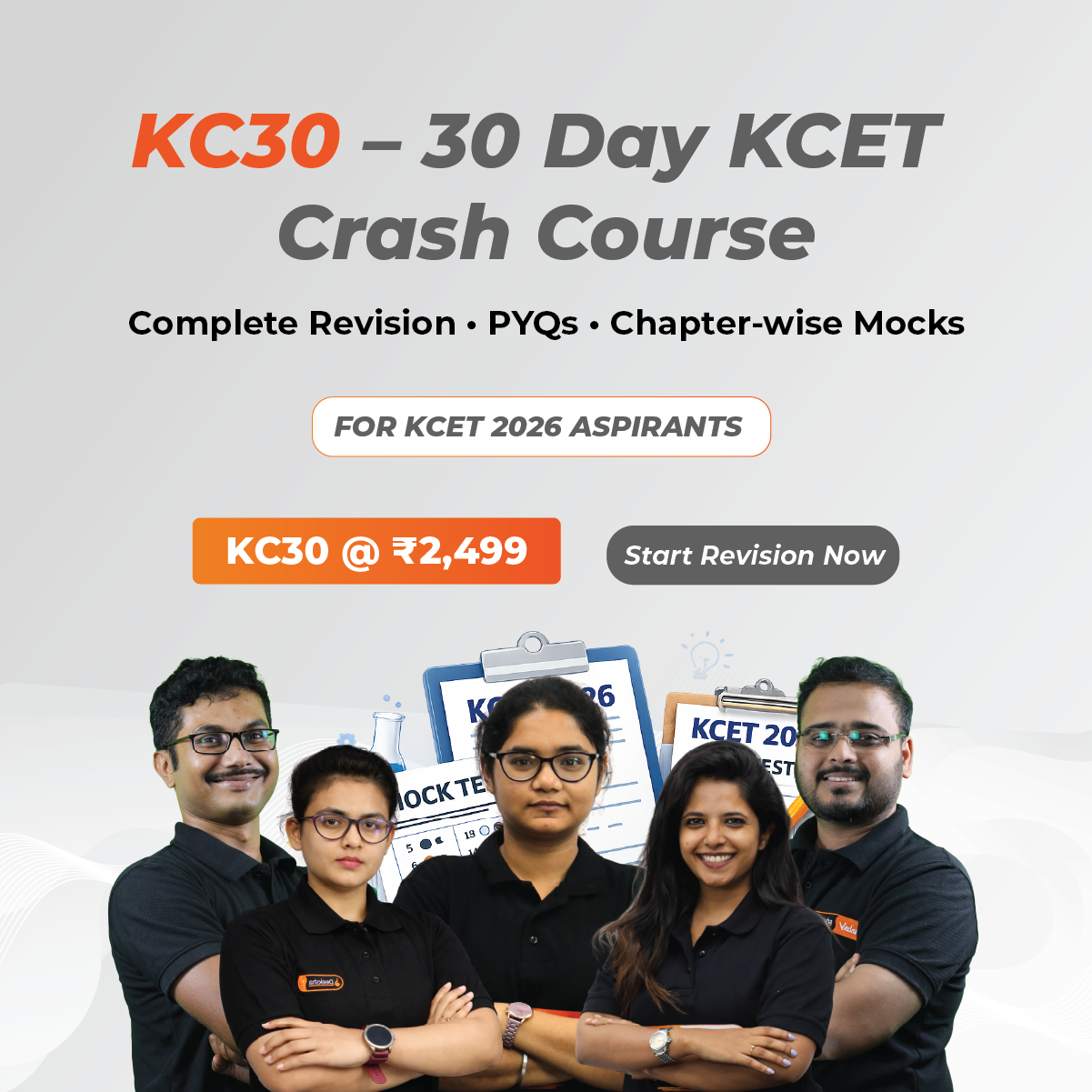


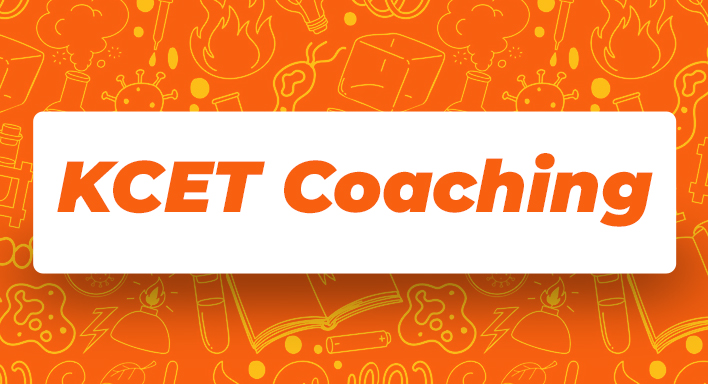
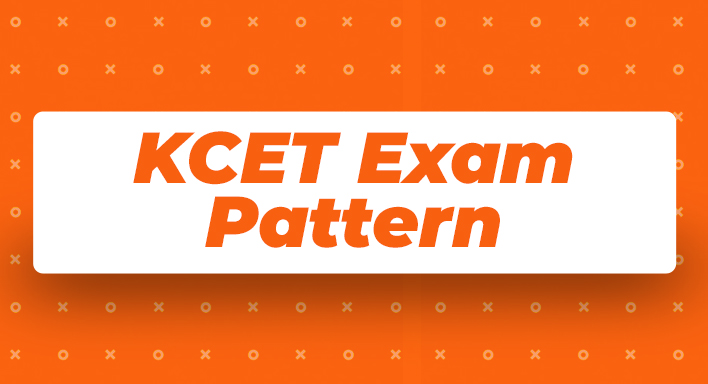
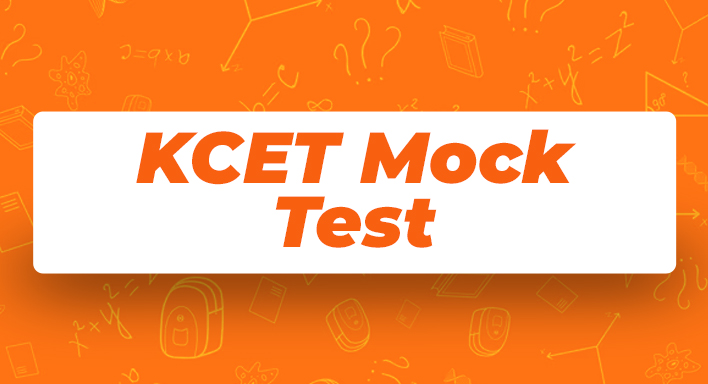

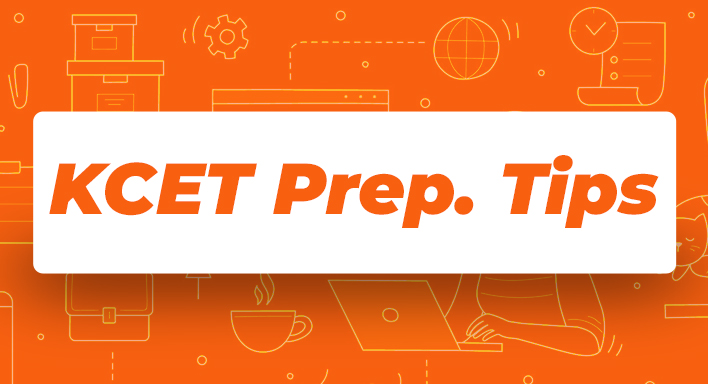
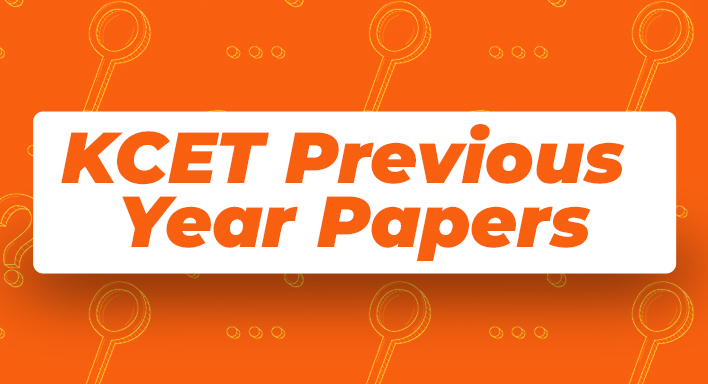
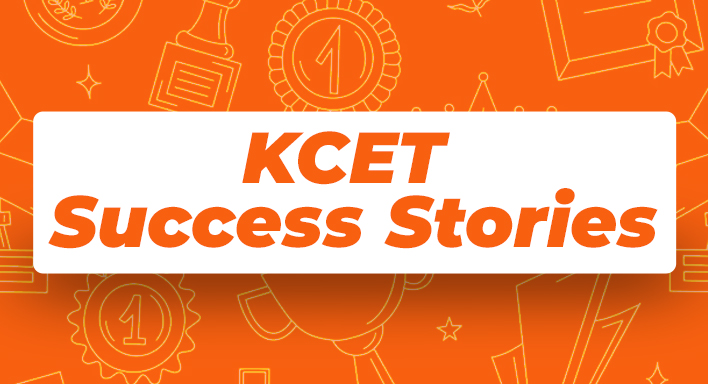
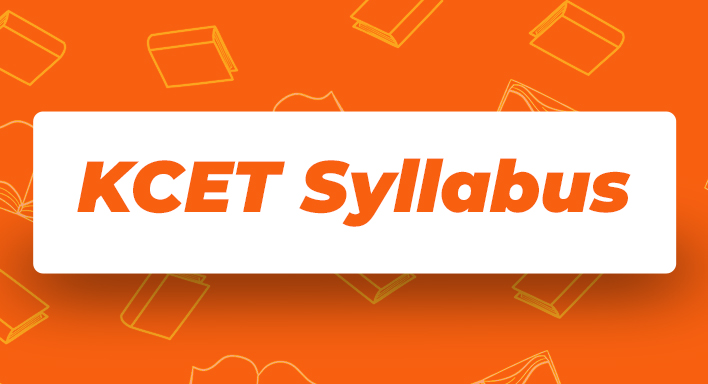
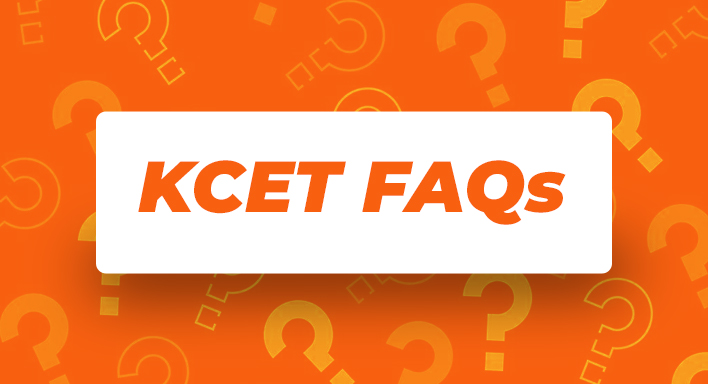
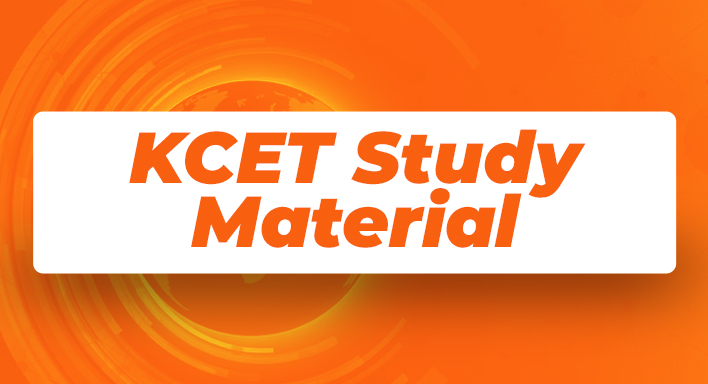


Get Social